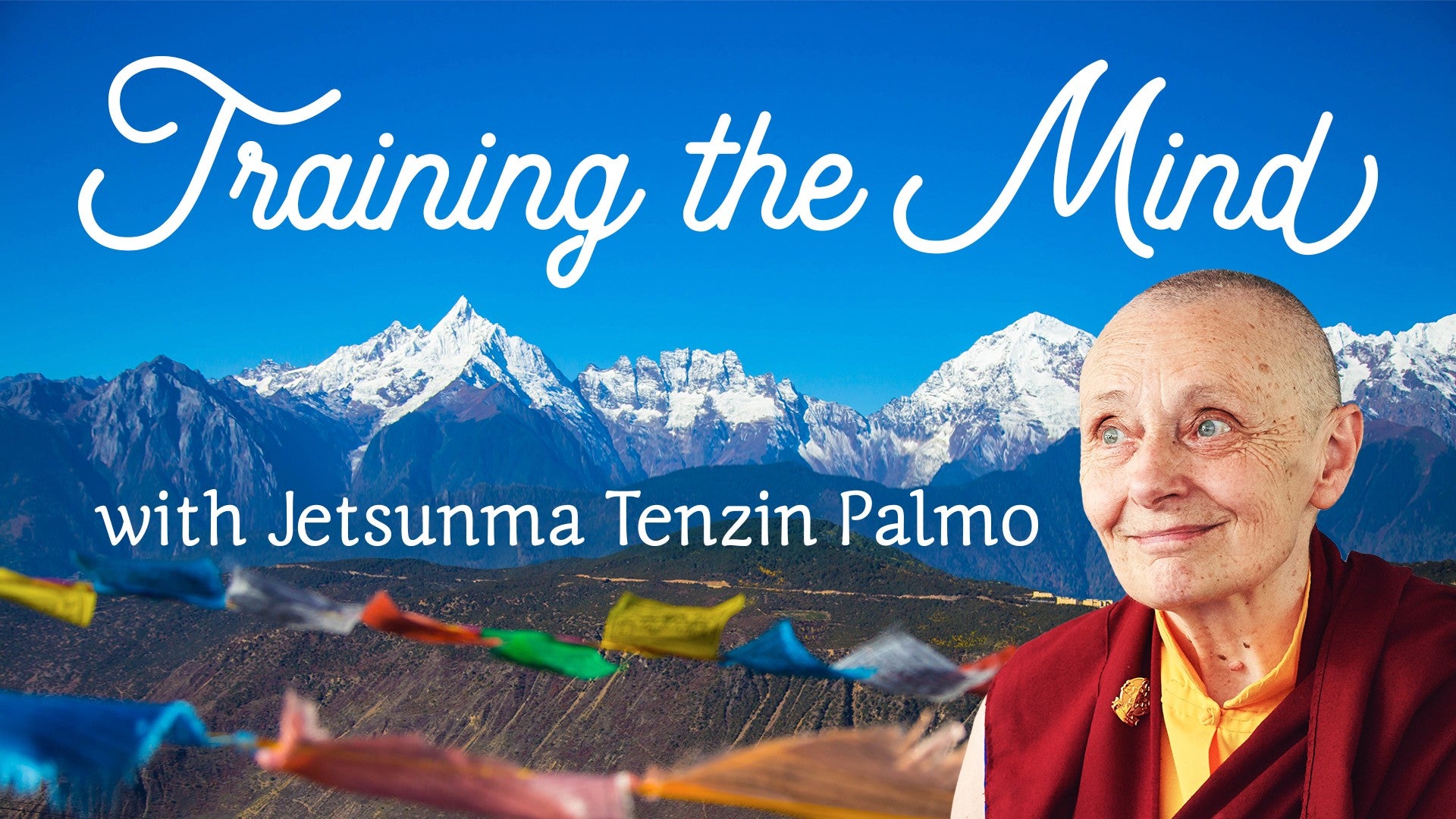Description
About This Video
Transcript
Read Full Transcript
stream benefit is a mind that turns towards the dharma. It's very easy sometimes to get caught in all the, especially in Tibetan Buddhism, to get caught in all the outer manifestations. You know, there is a story, I tell this story, and everybody always looks blank. But anyway, the story is that there's this temple in Tibet called the Jokang in Tlasa, this most sacred temple. And so then there was this man who was doing prostrations, the Tibetans love prostrations, they do these full, full length prostrations. So he was doing all these full length prostrations. And this lama came along and said, well, it's very good you're doing prostrations, but why don't you practice dharma? So then he sits up, I'm in a bedroom, I'm in a bedroom, I'm in a bedroom, I'm in a bedroom, I'm in a bedroom, I'm in a bedroom, lama comes along, said, very good, you're doing money, but why don't you practice dharma? So he starts circumambulating, Tibetans are very fond of circumambulating. Again, the lama says, well, very good you're circumambulating, but why don't you practice dharma? And he says, well, I was doing prostrations, I was doing mani recitation, I was doing kora, what am I supposed to do? And he said, you must turn your mind towards the dharma. It's very easy to get trapped in external expressions, but to turn the mind towards the dharma. Because then whatever we do is a dharma practice. We have to turn the mind. Dharma isn't just something we do when we are sitting in formal practice or when we go to the dharma centers or when we're reading a spiritual book. It's the mind merges with the practice, the mind and the dharma become one. Then whatever we do, whatever we say, whatever we think is dharma. This is this way I put it at the end. It's the most important thing. Whatever your dharma is, and the Buddha said that dharma was anything which was wholesome and virtuous, not just Buddhism. In those days, in the time of the Buddha, there was no Buddhism. So the supreme benefit is the mind which turns towards and merges with that which is wholesome. And this benefits not only ourselves, but benefits everyone. Because the mind, the dharma and the mind become one. They're not separate. It's not the mind striving towards the dharma. The mind is the dharma. Then everything that we think, say and do, if we have mindfulness, becomes a dharma practice. If we divide and think this is dharma activity, this is mundane practice, then the two separate, then nothing is ever going to transform inside. It can only transform when the dharma and our mind completely merge into one. And then we become the dharma. And there's no separation. The mind turns towards the dharma and becomes merged with the dharma. Then whatever we are doing, whether we're taking care of our family, whether we're at work, whether we're at leisure time, whatever we are doing, if we do it with what this Australian monk called kindfulness, right? The amalgamation of being mindful, knowing, and at the same time, kind. If we have kindfulness in our life, then everything we do is a dharma practice. We don't have to circumambulate or do frustrations. We can do that too. But every action, if we do it with mindfulness and with a kind, open heart towards all beings, that's it. That's the dharma practice. It's not how many millions of months we say or how many vipassana retreats we go on. It's a matter of transforming our daily life into a practice. Open, spacious, relaxed mind, aware with an open heart, which wishes all beings to be well and happy. It's very simple. Simple doesn't mean easy, but if we genuinely apply ourselves, it's not difficult. Insofar, it is not elaborate. It's very simple. We can all do it, at least for a few minutes. So if we can do it for a few minutes, we can do it for a few minutes more. And like I said, yes, before, you know, if we think even three times in an hour, I will try to observe my mind and, you know, keep a kind heart, then gradually that builds up momentum. Gradually, the mind begins to be practiced in doing that. So those moments become longer and longer and gradually they become more and more frequent until finally becomes effortless. Anybody can do it. Anybody can do it. The problem is we don't do it. We say, oh yeah, that's a lovely idea. I must try that sometime. Dalai Lama says that really what we should strive for is cultivating the good heart. We can all do that. We turn our mind to the Dalai Lama by using everything we have as our opportunity for practice and not making a division.
Training the Mind with Jetsunma Tenzin Palmo
Comments
You need to be a subscriber to post a comment.
Please Log In or Create an Account to start your free trial.













